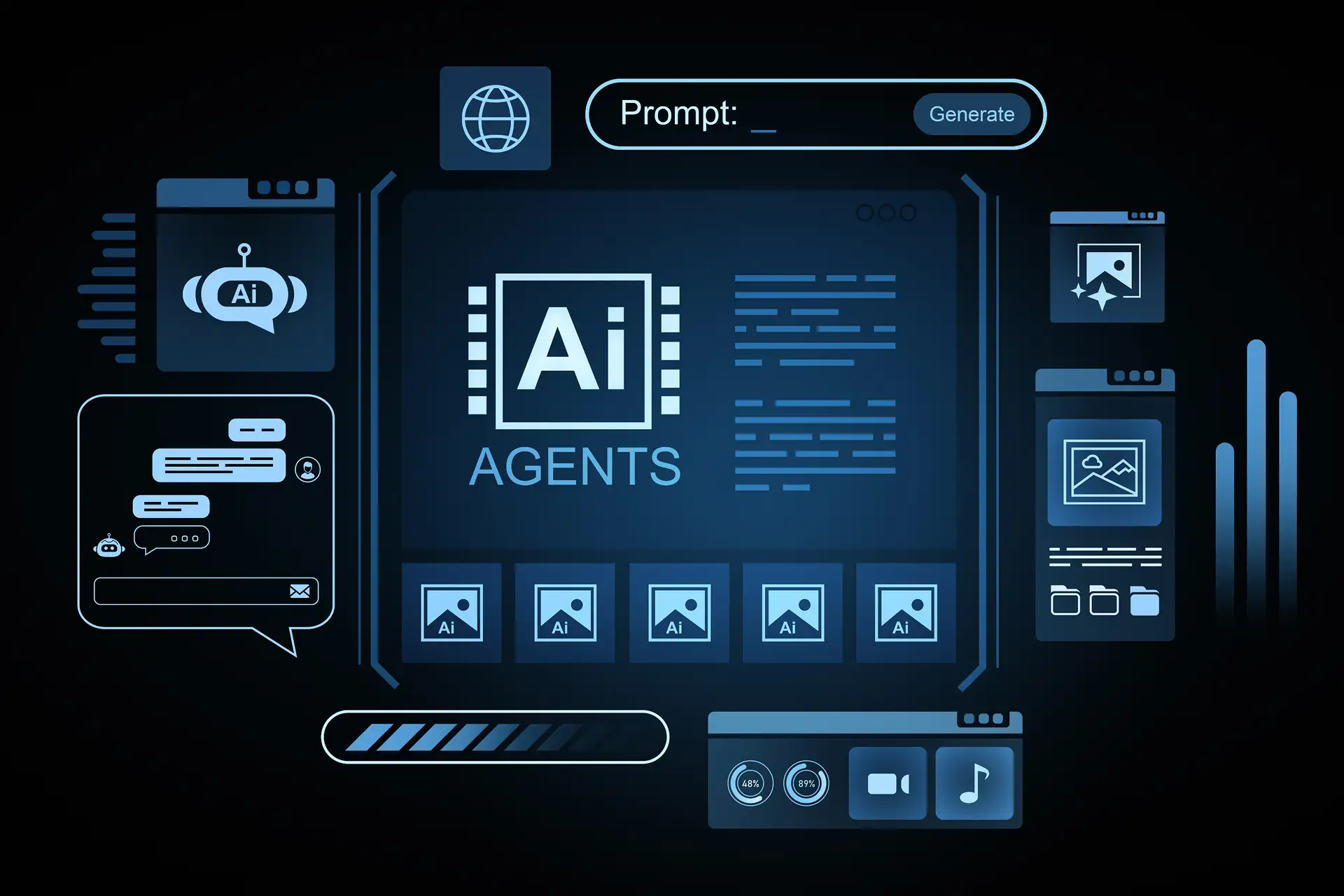Marketing
The Ultimate Guide to Digital Marketing Trends in 2026

As a business owner, your time and resources are precious. The digital marketing landscape is constantly evolving, and keeping up can feel like a full-time job. Yet, staying ahead of the curve is not just an advantage; it's essential for survival and growth. The strategies that worked last year may not deliver the same results today. As we navigate, understanding the key shifts in consumer behavior and technology is crucial to connecting with your audience, building your brand, and driving revenue.
This guide is designed to cut through the noise. We will move beyond the surface-level buzzwords to explore the substantive trends shaping the future of digital marketing. We will focus on actionable strategies and a few lesser-discussed, yet critical, areas that can give your business a significant competitive edge. By understanding and implementing these approaches, you can create a more resilient, effective, and profitable marketing ecosystem for your business.
Hyper Personalization at Scale: Beyond a First Name
Personalization has evolved far beyond simply inserting a customer's first name into an email subject line. In 2026, consumers expect a deeply individualized experience at every touchpoint. They anticipate that brands will understand their needs, remember their past interactions, and present them with relevant content and offers tailored to their preferences. In fact, according to a report by McKinsey 71% of consumers now expect companies to deliver personalized interactions, and 76% become frustrated when this expectation is not met. For a small business, this might sound resource-intensive, but the rise of accessible AI-powered tools is helping to level the playing field.
This new wave of hyper-personalization allows you to dynamically alter your website content based on a user's browsing history, location, or past purchases. Imagine a first-time visitor seeing a welcome offer, while a returning customer sees products related to their last purchase. In email marketing, it means segmenting your audience not just by demographics, but also by engagement levels and purchase intent, and sending tailored promotions or content that genuinely resonates. AI can analyze customer data to predict future behavior, enabling you to proactively offer solutions before customers even realize they need them. The goal is to make every customer feel like they are having a one-on-one conversation with your brand, fostering a sense of loyalty that generic, one-size-fits-all marketing simply cannot achieve.
On-SERP SEO: Winning Without the Click
For years, the primary goal of Search Engine Optimization (SEO) was to secure the number one ranking on the Google results page. While a top ranking is still valuable, the landscape of the search engine results page (SERP) itself has fundamentally changed. The rise of "zero-click searches," where a user's query is answered directly on the results page without them needing to click through to a website, is a critical trend for 2026. According to data from Semrush, a significant percentage of all Google searches now end without a click to any web property.
This means your SEO strategy must expand. The new goal is to dominate the SERP real estate. This involves optimizing for features like "People Also Ask" boxes, Featured Snippets, knowledge panels, and image carousels. To do this, you must structure your website content to directly answer common customer questions. Use clear headings, bulleted lists, and concise paragraphs that Google can easily pull to create a snippet. By providing the answer directly on the SERP, you establish your brand as an authority and build awareness, even if you don't get the initial click. This "on-SERP SEO" is about capturing attention and building trust at the very first point of contact with a potential customer.
Conversational Commerce: The New Digital Storefront
The line between communication and transaction is becoming increasingly blurred. Conversational commerce, which uses AI-powered chatbots and messaging apps to facilitate sales, is moving from a novelty to a core business function. Consumers value convenience above all, and the ability to ask a question, get a recommendation, and complete a purchase within a single chat window, whether on your website, Facebook Messenger, or WhatsApp, is a powerful tool. This is more than just a customer service bot; it's a 24/7 sales assistant.
Modern AI chatbots can handle complex queries, guide users through product selections, qualify leads by asking targeted questions, and even process payments securely. For a small business owner, this automates a significant portion of the sales funnel, freeing you up to focus on other critical tasks. It shortens the path to purchase by removing friction and providing instant gratification. As consumer comfort with these interactions grows, with many studies showing a preference for chat for simple queries, integrating a smart conversational strategy is no longer optional for businesses looking to provide a seamless and efficient customer experience.
The New Era of Video: Short-Form, Live, and Shoppable
Video marketing is not a new trend, but its application has become far more nuanced. Nearly all marketers (96%, according to Wyzowl’s marketing statistics) consider video content marketing an essential part of their marketing strategy, and 91% of businesses use video as a marketing tool. A single, polished brand video is no longer sufficient. Moving forward, a successful video strategy is a multi-pronged approach that leverages various formats to achieve different goals. Short-form video, dominated by platforms such as TikTok, Instagram Reels, and YouTube Shorts, is essential for top-of-funnel brand awareness. These quick, engaging, and often informal videos are perfect for showcasing your brand's personality, sharing quick tips, and capturing the short attention spans of modern audiences.
Simultaneously, live video on platforms like Instagram and Facebook provides an unparalleled opportunity for community building and direct engagement. Live Q&A sessions, behind-the-scenes tours, or product demonstrations create a sense of immediacy and authenticity that pre-recorded content cannot match. The final piece of the puzzle is shoppable video. This technology enables you to tag products directly within a video, allowing viewers to make a purchase without leaving the platform. This frictionless path from discovery to conversion is incredibly powerful, and statistics from Sprout Social show that consumers are increasingly influenced by video content in their purchasing decisions.
Data Privacy and the Rise of First-Party Data
One of the most significant, yet often overlooked, technical shifts impacting small businesses is the depreciation of third-party cookies. For years, marketers have relied on these cookies to track users across the web and deliver targeted ads. As privacy regulations tighten and browsers phase them out, this capability is disappearing. This can seem daunting, but it presents a massive opportunity for businesses to build more meaningful, consent-based relationships with their customers by focusing on first-party data.
First-party data is the information you collect directly from your audience with their permission. This includes email addresses from your newsletter sign-ups, purchase history from your CRM, and preferences shared through a customer account or loyalty program. This data is more accurate and valuable than any third-party data you could buy. In the present and future, the focus must be on creating value exchanges that encourage customers to share their information willingly. Offer exclusive content, early access to sales, or personalized recommendations in exchange for an email address. Building this first-party data asset is not just a marketing tactic; it's a foundational business strategy that creates a direct, private line of communication with your most engaged customers, insulating you from the whims of algorithm changes and privacy updates.
Conclusion
The digital world of the present and future demands a more sophisticated, human-centric approach to marketing. Success is no longer just about being online; it's about providing genuine value through hyper-personalized experiences, establishing authority directly on the SERP, offering seamless conversational commerce, engaging audiences with strategic video content, and building trust through the ethical collection of first-party data. These trends are not isolated tactics but interconnected elements of a holistic strategy that places the customer at its core.
Navigating these shifts can be complex, whether you are a new business just finding your footing or a mature company looking to modernize your digital presence. At LTN Business, we specialize in demystifying the digital landscape. Our team can help you implement these advanced strategies, from developing an on-SERP SEO plan and deploying AI-powered chatbots to building your first-party data assets. We provide digital solutions tailored to your unique goals, ensuring your business not only keeps pace but thrives in the dynamic market now and beyond.
The
Team










.svg)
















